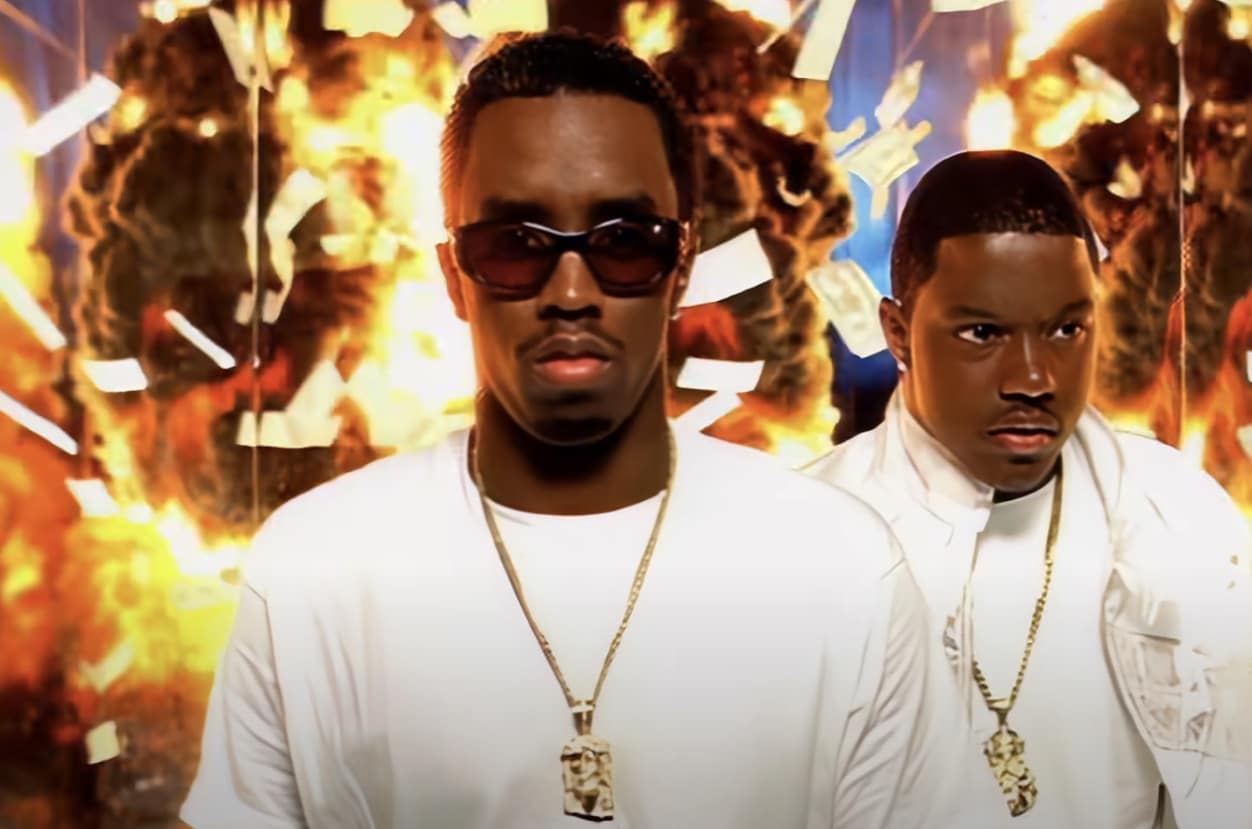Basketball Africa League set for next step in evolution
OKLAHOMA CITY – While it is a work in progress, the Basketball Africa League plans to truly evolve into a league in the coming years. The BAL has been more of a tournament than an actual league since it began action in 2020. Some teams qualify through the “The Road to the BAL” tournaments while [...]

OKLAHOMA CITY – While it is a work in progress, the Basketball Africa League plans to truly evolve into a league in the coming years.
The BAL has been more of a tournament than an actual league since it began action in 2020. Some teams qualify through the “The Road to the BAL” tournaments while other teams qualified automatically as national champions from select, predetermined countries.
NBA deputy commissioner Mark Tatum, however, confirmed to Andscape recently that the BAL will evolve into a 12-team league with permanent franchises in the coming years, with no set date for when this will happen. Each permanent franchise would need a state-of-the-art arena to participate (not teams that qualify through open spots), which means a modern arena that elevates the fan experience. There will likely be 10 permanent franchises with two annual qualifying at-large teams, sources said. Tatum also added that the NBA has received strong interest from potential suitors wanting to own a team.
The BAL’s milestone fifth season set records in attendance, viewership and merchandise sales. More than 140,000 fans attended BAL games in Morocco, Senegal, Rwanda and South Africa. The BAL YouTube channel generated a record 3.5 million live views (+84% YoY). Since 2021, the BAL has contributed more than $250 million to Africa’s gross domestic product (GDP), a number that is expected to grow to $5.4 billion by 2034.
“We are absolutely exploring the possibility of bringing on franchises in the BAL, which would be a natural evolution of where we are with the BAL today,” Tatum told Andscape on Oct. 12, prior to the Oklahoma City Thunder’s home game against the Houston Rockets. “We just completed our fifth season in the BAL with record-breaking viewership, record-breaking merchandise sales, and social media engagement.
“And this is off of a league that we’re continuing to expand and grow. And for us to continue to grow and be on that trajectory, it makes sense to have individuals who have skin in the game and who have vested interest in investing and growing basketball on the continent.
“And what that will require is investments in not only buying a franchise, but investment in infrastructure, investments in things like academies and grassroots basketball development. And so, for me and for us, it’s the natural next stage of the evolution of the growth of basketball on the continent.”
It appears the new 12-team BAL also won’t debut all at once, rather the new 10 permanent teams can be added to the league piece by piece beginning in the 2027 season, sources said. That also ensures that the 2026 BAL season will have 12 independent teams per usual with to-be-determined sites. A BAL franchise is expected to start at about $50 million and potentially more depending on the market, sources told Andscape.
The NBA has operated in Africa for more than 30 years, with offices in Senegal, South Africa, Nigeria, Kenya and Egypt.
Tayfun Coskun/Anadolu via Getty Images

Tatum said the NBA has hired investment banking advisors to evaluate business plans to test potential markets for BAL franchises. The NBA is also gauging interest in potential markets it believe best fit the future BAL model.
“I will tell you the early indications are very good and very positive,” Tatum said. “There are people out there who see the value of these franchises, who see the value of the continent, who see the value of investing in a league that’s operated and run by the NBA and FIBA. In other leagues that we’ve operated and run, those investments have turned out to be very, very positive.
“And so, you have a group of people who are looking to invest in sports as an asset class, and they’re looking at the growth potential of Africa. And they’re looking at how the NBA operates and runs lease and creates value for other owners and investors. And we’re hearing very positive things from the marketplace right now.”
One prospective suitor is former Cal-Berkeley forward Stephen Domingo, who is the co-founder and part-owner of the Nairobi City Thunder in Kenya. The NCT qualified to play in the BAL last season for the first time. Motivated by joining the BAL permanently, the San Francisco native said the NCT ownership has the intention to build a 5,000-7,500-seat, multi-purpose arena in Nairobi, but a date is to be determined. Domingo, whose father is Nigerian, said the NCT intend to make a bid to join the BAL as a permanent franchise.
“The franchise model allows us to make long-term investments across all the value creation opportunities that lie in professional basketball, including entertainment,” Domingo told Andscape. “Being in the new BAL means that we are bringing East Africa and Nairobi on a continental stage. It’s something that Kenyans and East Africans want to get behind to support. That could be one of the most dynamic fan bases on the continent, and they wear that badge with pride.”
Tatum acknowledged that there are former NBA players interested in owning teams. Grant Hill, Joakim Noah, Ian Mahinmi and Luol Deng — as well as the late Dikembe Mutombo and the late Junior Bridgeman — have invested in NBA Africa, which includes the BAL. Other key NBA Africa investors include former U.S. President Barack Obama, Nigerian businessman Babatunde “Tunde” Folawiyo, and Helios Fairfax Partners Corporation, which joined forces with former Toronto Raptors president Masai Ujiri to build a $26 million mixed-use development in Kigali, Rwanda, that opened in July.
“We have had conversations with several former players who are interested in a franchise opportunity in Africa,” Tatum said.
Armand Lenoir/NBAE via Getty Images

Tatum acknowledged that one the biggest challenges for a new 12-team BAL is finding markets that have state-of-the-art arenas. Tatum said that Kigali, Rwanda; Dakar, Senegal; and Johannesburg, South Africa are the three African cities with the needed arenas now. Tatum also said the NBA has talked to officials from Morocco about building a state-of-the-art arena in the country that can be used for a permanent BAL team. He said finding the right investors will determine when the new BAL will be pieced together, but there are some potential markets in mind for the 10 coveted permanent spots.
“We’ll stage it over time,” Tatum said. “There are probably about 10 cities or so in countries across Africa that we are very focused on. Cities like Lagos (Nigeria) and Nairobi, Abidjan (Ivory Coast), Accra (Ghana), Johannesburg (South Africa) and Cairo (Egypt) and Rabat (Morocco), or even Casablanca (Morocco), Dakar (Senegal), Kigali (Rwanda). So, I think those are some of the major markets that we’re focused on. And again, you could see a staging of them over a period of the next couple of years.”
Tatum said the NBA believes the benefits of the new BAL will be having a league in Africa where more than 1.5 billion people reside. The 2025 BAL season included preliminary group stages in three sites, followed by an eight-team playoff in one site. The new 12-team BAL will include teams hosting their own games. Along with needing state-of-the-art arenas, other challenges in a new BAL include long and expensive travel, adjusting to the different cultures in every market, and different languages.
“There’s over a billion people [in Africa] with the fastest growing youth population in the world,” Tatum said. “Forty percent of the world’s youth population will be in Africa in five years. And you’ve got some of the fastest growing economies in the world in Africa. So, I think that is a huge opportunity and a huge benefit.
“The challenge is it’s a geographically dispersed market. There are different cultures, there are different languages. And I think those are some of the challenges that we are dealing with. But despite all of that, we’re seeing this record growth in the Basketball Africa League. And we think that we’re scratching the surface of the future potential of this league. …
“One of the benefits of the existing format today is that it’s truly open to everyone. It is sort of a champions league of basketball on the continent. But one of the challenges is every year those teams change. And so, if you’re a fan, you have to get used to, ‘OK, who’s this new team from Egypt? Who’s this new team from Libya? I’ve never heard of them before.’ A big part of this investment or this model of franchises is having someone who’s going to invest in marketing, who’s going to invest in a brand. That’s an important part of the future of basketball in Africa.”
The post Basketball Africa League set for next step in evolution appeared first on Andscape.
Share
What's Your Reaction?
 Like
0
Like
0
 Dislike
0
Dislike
0
 Love
0
Love
0
 Funny
0
Funny
0
 Angry
0
Angry
0
 Sad
0
Sad
0
 Wow
0
Wow
0















